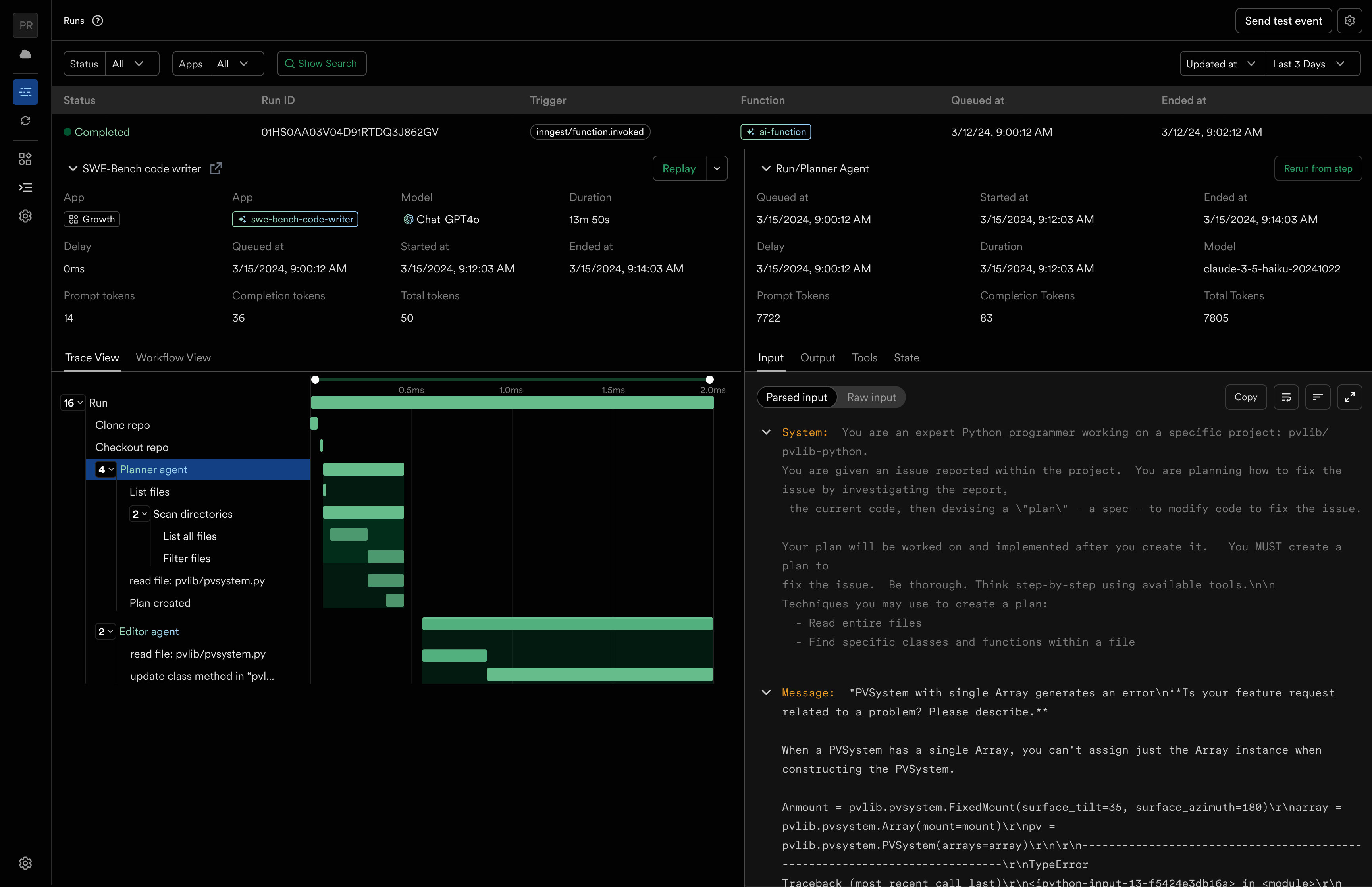
What is AgentKit?
Building reliable and scalable AI systems shouldn’t feel like navigating a labyrinth. With AgentKit, you can design, test, and deploy multi-agent networks in TypeScript that are both deterministic and flexible. Whether you're building a simple support bot or orchestrating a complex system of autonomous agents, AgentKit provides the tools and structure to make it happen—without losing control. Backed by rich tooling via MCP (Model Context Protocol) and seamless integration with popular AI models and libraries, AgentKit empowers you to focus on solving problems rather than wrestling with infrastructure.
Key Features
✨ Define Agents with Precision
Create modular agents tailored to specific tasks using prompts, tools, and shared state.
Use familiar TypeScript syntax to define agent behavior while leveraging powerful integrations like Claude’s Model Context Protocol (MCP).
🌐 Build Collaborative Networks
Combine multiple agents into networks where they share memory and collaborate seamlessly.
Leverage a shared state machine for deterministic routing and task orchestration.
🤖 Flexible Routing Options
Choose between code-based routing for full control over execution flow or agent-based routing for autonomous decision-making.
Use lifecycle callbacks to maintain oversight even in fully autonomous setups.
🔍 Debug with Confidence
Trace workflows locally and in the cloud with built-in tracing and logging tools.
Identify bottlenecks and optimize performance before deploying to production.
⚙️ Integrate with Your Stack
Works with OpenAI, Anthropic, Gemini, and other OpenAI-compatible models.
Plug into tools like Smithery, E2B, Browserbase, and Inngest Dev Server for enhanced capabilities.
Use Cases
1. Automated Customer Support Systems
Imagine a customer support network where one agent handles FAQs, another escalates critical tickets, and a third updates ticket statuses—all autonomously. Using AgentKit's agent-based routing, you can build a "Supervisor" agent that intelligently routes requests based on ticket priority or complexity. For human-in-the-loop scenarios, integrate waitForEvent() to pause workflows until a human intervenes.
2. Code Analysis and Documentation Generation
Streamline software development processes with an agent network designed for code analysis, documentation generation, and summarization. Start with a coding assistant agent that reads files, generates plans, and delegates tasks to specialized agents like documentation generators or code optimizers. The shared state ensures each agent has access to the latest context, enabling smooth collaboration without redundant work.
3. Autonomous Web Navigation for Research
Need answers from scattered online resources? Build a simple search agent capable of navigating websites, extracting relevant data, and presenting summaries. With deterministic state-based routing, you can ensure the agent follows logical steps—from searching keywords to aggregating results—while maintaining transparency and traceability throughout the process.
Conclusion
AgentKit redefines how developers approach AI systems by offering a balance of flexibility, reliability, and scalability. Its modular architecture and rich feature set make it ideal for tackling challenges ranging from customer service automation to complex research tasks. Whether you’re new to AI agents or a seasoned developer, AgentKit equips you with everything needed to turn ideas into functional, production-ready solutions.

More information on AgentKit
AgentKit Alternatives
Load more Alternatives-

Build custom AI agents fast with Open Agent Kit! Open-source, flexible, & deployable anywhere. Connect LLMs & extend with plugins.
-

Agent Squad: Open-source framework to orchestrate AI agent teams for complex conversations. Python & TS support, flexible context & routing.
-

-

Build powerful AI agents with ADK! Code-first, modular, & integrates with Google tools. Take control of your agent development.
-

OpenAI Agents SDK: Python for production AI apps. Build agents, tools, guardrails, tracing.
